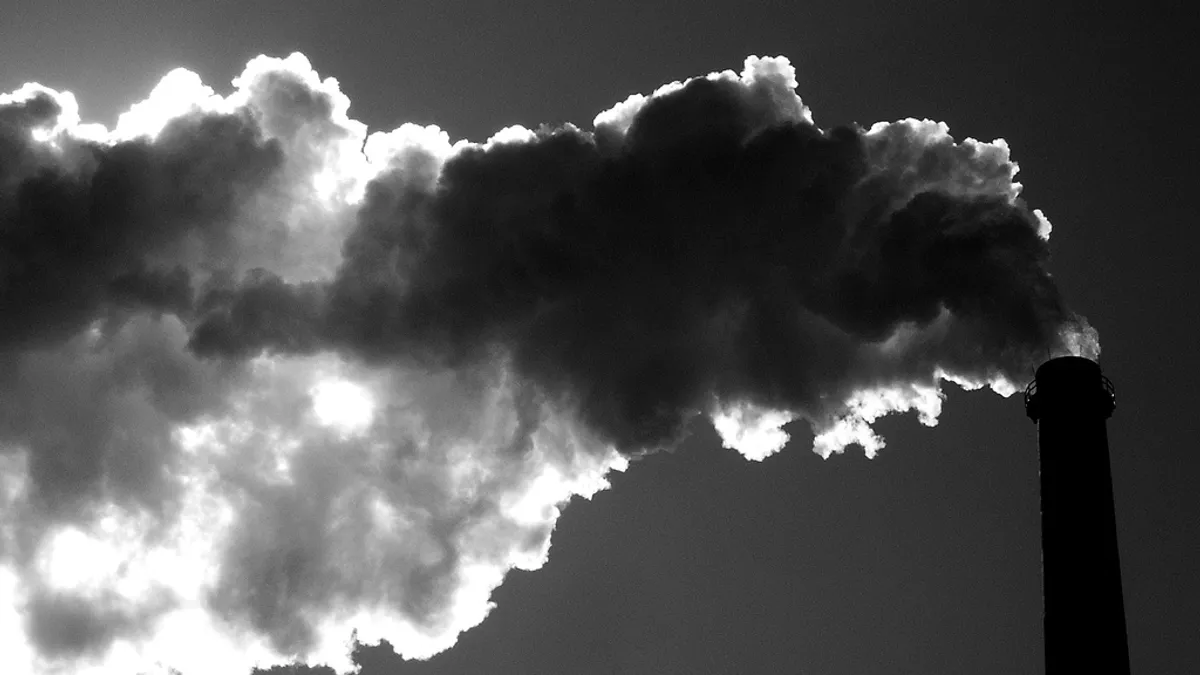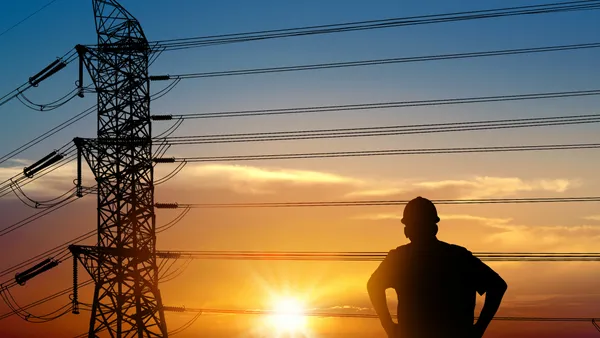Dive Brief:
- Virginia stakeholders are in the early stages of considering how the state will cut its carbon emissions, but preparations to either create or join a carbon-trading market could be complete by January 2018.
- However, Southeast Energy News reports that at a meeting last week, which included clean energy advocates and Dominion Energy, some stakeholders said the utility appeared to be putting limits on how it would be willing to engage with such a program. Utility officials say they are not "stonewalling” but must move forward with caution.
- Virginia officials are considering either developing a mandatory cap-and-trade program or possibly joining the nine-state Regional Greenhouse Gas Initiative in the Northeast. Last month, Gov. Terry McAuliffe directed the state's Department of Environmental Quality to begin establishing power plant emissions limits.
Dive Insight:
Southeast Energy News carries the details from a workshop held last week in Richmond, featuring a range of clean energy groups as well as utility officials. But early conflict may be bubbling up, according to the news source.
The state's efforts to develop some kind of carbon trading scheme will require significant work, and Dominion Director of Corporate Public Policy Lisa Moerner said any reduction program "must be designed to provide flexible compliance options to maintain fuel diversity, ensure electricity reliability and minimize cost to customers.”
The Virginia General Assembly convenes in January. Previous efforts to join Northeast Regional Greenhouse Gas Initiative (RGGI) have been unsuccessful, and would require approval by the legislature. McAuliffe reportedly wants lawmakers to begin work on implementing a carbon reduction plan once back in session.
Executive Directive 11 directs the Department of Environmental Quality to begin the process of establishing regulations to reduce carbon emissions from power plants, and follows Executive Order 57, which required the Secretary of Natural Resources to convene a work group to study and recommend methods to reduce carbon emissions.
McAuliffe's carbon push came as President Trump was signaling a change of direction at the federal level, pulling the United States out of the United Nations Paris climate accord. "As the federal government abdicates its role on this important issue, it is critical for states to fill the void," the governor said at the time.
The accord aims to limit global warming to 2°C this century. A dozen states and Puerto Rico formed the U.S. Climate Alliance and committed to reducing emissions 26% or 28% from 2005 levels, while meeting or exceeding the targets of the Obama administration's Clean Power Plan. Virginia was among those states.














